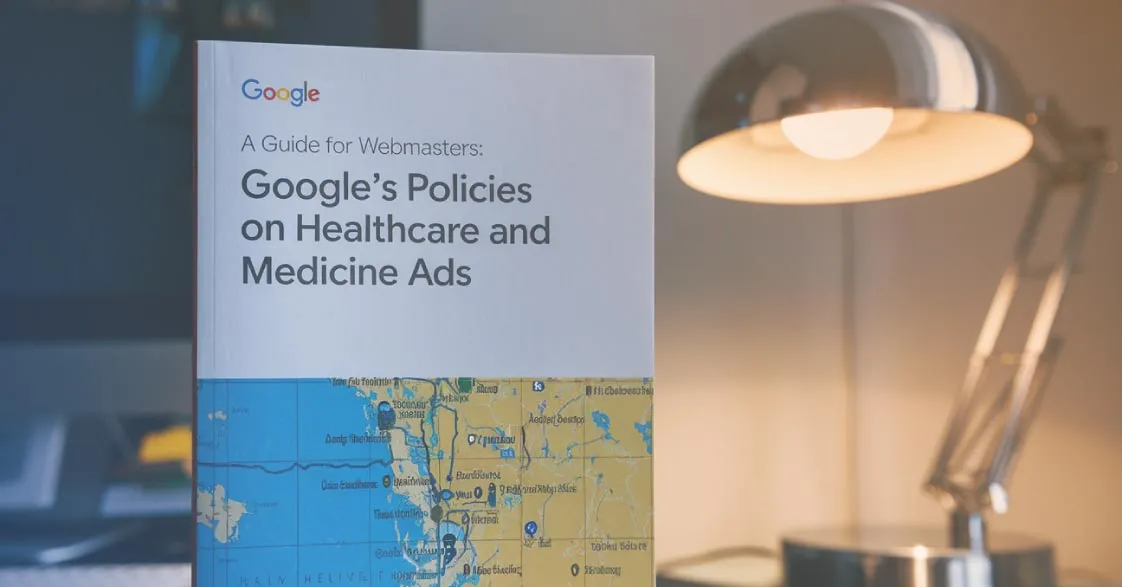A Guide for Webmasters: Google’s Policies on Healthcare and Medicine Ads

Google has strict and specific policies regarding advertising healthcare and medicine-related Content. These rules exist to protect users from misleading information or potentially harmful claims. If you plan to advertise healthcare services, products, or medical-related Content, it's important to understand Google's guidelines to ensure compliance.
In this blog post, we'll explain:
- What Content falls under healthcare and medicines
- The key restrictions and requirements
- The need for certifications
- Country-specific regulations
- Consequences of violating these policies
1. What Falls Under "Healthcare and Medicines"?
Google's policies apply to a broad range of healthcare-related Content, including:
- Prescription Pharmaceuticals
- Medications that require a doctor's prescription, such as antibiotics, antidepressants, or controlled substances.
- Example: Advertising for blood pressure medicines like Lisinopril is restricted.
- Over-the-counter (OTC) Medicines
- Medications that can be bought without a prescription.
- Example: Pain relief tablets like Paracetamol fall under this category.
- Healthcare Services
- Professionals like doctors, hospitals, clinics, therapists, and telemedicine providers offer services.
- Example: Ads for dental care services or physical therapy sessions.
- Medical Devices
- Devices or tools used for medical purposes, such as hearing aids, pacemakers, prosthetics, and diagnostic tools.
- Example: Advertising for glucose monitoring devices for people with diabetes.
- Health and Wellness Content
- Content related to fitness, nutrition, treatments, specific health conditions, and general well-being.
- Example: Ads announcing weight loss programs or nutritional supplements.
2. Key Restrictions and Requirements
Google imposes several restrictions and guidelines for advertising healthcare content:
1. Prescription Drugs
- Promotion of prescription drugs is heavily restricted and even prohibited in many countries.
- Ads may be allowed in select cases if advertisers meet specific Google requirements and certifications.
Example: Ads for prescription drugs are allowed in the U.S., but advertisers must be certified by LegitScript.
2. Online Pharmacies
- Online pharmacies must be certified by Google, often requiring third-party accreditation like LegitScript.
- Country-specific rules may apply to the sale and promotion of online medicines.
Example: An online pharmacy in Canada must comply with both Google's policies and local pharmacy regulations.
3. Telemedicine
- Telemedicine providers must obtain certifications from organizations like LegitScript and apply for approval with Google.
- Ads must adhere to regional guidelines on healthcare delivery.
Example: A telehealth platform offering online consultations must display clear and accurate information about its services.
4. Advertising Specific Health Conditions
- Ads about sensitive health topics (like HIV treatment, cancer therapies, or mental health) may face stricter guidelines.
- Google may limit targeting options or restrict ads entirely.
5. Misleading or Deceptive Claims
- Ads must be honest, accurate, and free from exaggerated claims.
- Avoid using before-and-after images or testimonials that misrepresent the product's effectiveness.
Example: Claiming "100% guaranteed weight loss in 10 days" would violate Google's policies.
6. Personalized Advertising
- To protect user privacy, Google restricts the use of personalized ads (remarketing, retargeting, and audience targeting) for healthcare topics.
- Advertisers cannot target audiences based on sensitive health interests.
Example: You cannot retarget ads for mental health therapy sessions to your website users.
3. Certification and Approval
To advertise healthcare and medicine-related Content, advertisers may need to go through a certification process:
- Google Certification
- Businesses must apply for Google's healthcare ad certification.
- This process provides compliance with advertising rules and protects user safety.
- LegitScript Certification
- Certification from LegitScript is compulsory for online pharmacies, telemedicine platforms, and certain medical services.
Example: An online pharmacy that delivers medication in the U.S. must have both Google and LegitScript approvals.
4. Country-Specific Regulations
Google's healthcare advertising policies are in addition to local laws and regulations in your target countries. You must ensure that your ads comply with:
- Local health authority rules
- Country-specific advertising standards
Example: An ad for OTC medicines in the U.K. must comply with the policies established by the MHRA (Medicines and Healthcare Products Regulatory Agency).
5. Consequences of Violating Google's Policies
If you fail to comply with Google's strict guidelines, you could face:
- Ad Disapproval: Your ads may be rejected and won't run until you fix the violations.
- Account Suspension: Continuous violations may lead to the full suspension of your advertising account.
- Search Engine Penalties: Your website could be penalized in Google search results.
Example: An uncertified online pharmacy advertising prescription drugs may have its Google Ads account suspended and lose organic search visibility.
6. Best Practices for Healthcare and Medicine Advertising
To ensure compliance and success, follow these best practices:
- Obtain Certifications: Apply for Google and third-party certifications like LegitScript for approval.
- Be Transparent: Avoid deceptive claims and state product benefits and limitations.
- Comply with Local Regulations: Research and adhere to regional laws on healthcare advertising.
- Avoid Sensitive Targeting: Avoid using remarketing or personal data to target users.
- Monitor Your Ads: Regularly check your campaigns for compliance and address violations promptly.
Final Words
Google's strict healthcare and medicine advertising policies are designed to protect users from harmful, misleading, or inappropriate Content. To advertise successfully, businesses must:
- Understand what Content falls under these policies.
- Obtain necessary certifications like Google and LegitScript approvals.
- Follow regional laws and guidelines.
By sticking to these rules and focusing on accuracy, transparency, and user safety, businesses in the healthcare and medicine industry can leverage Google Ads effectively while maintaining trust and compliance.
For businesses in this space, staying updated on Google's Healthcare and Medicines Advertising Policies is essential to avoid penalties and ensure successful campaigns.

